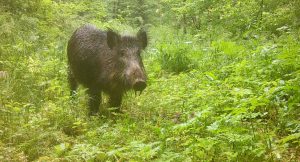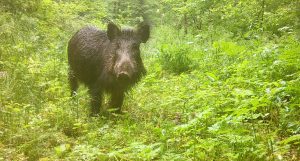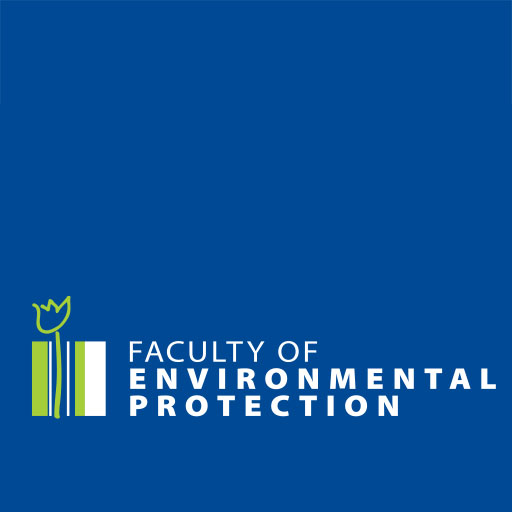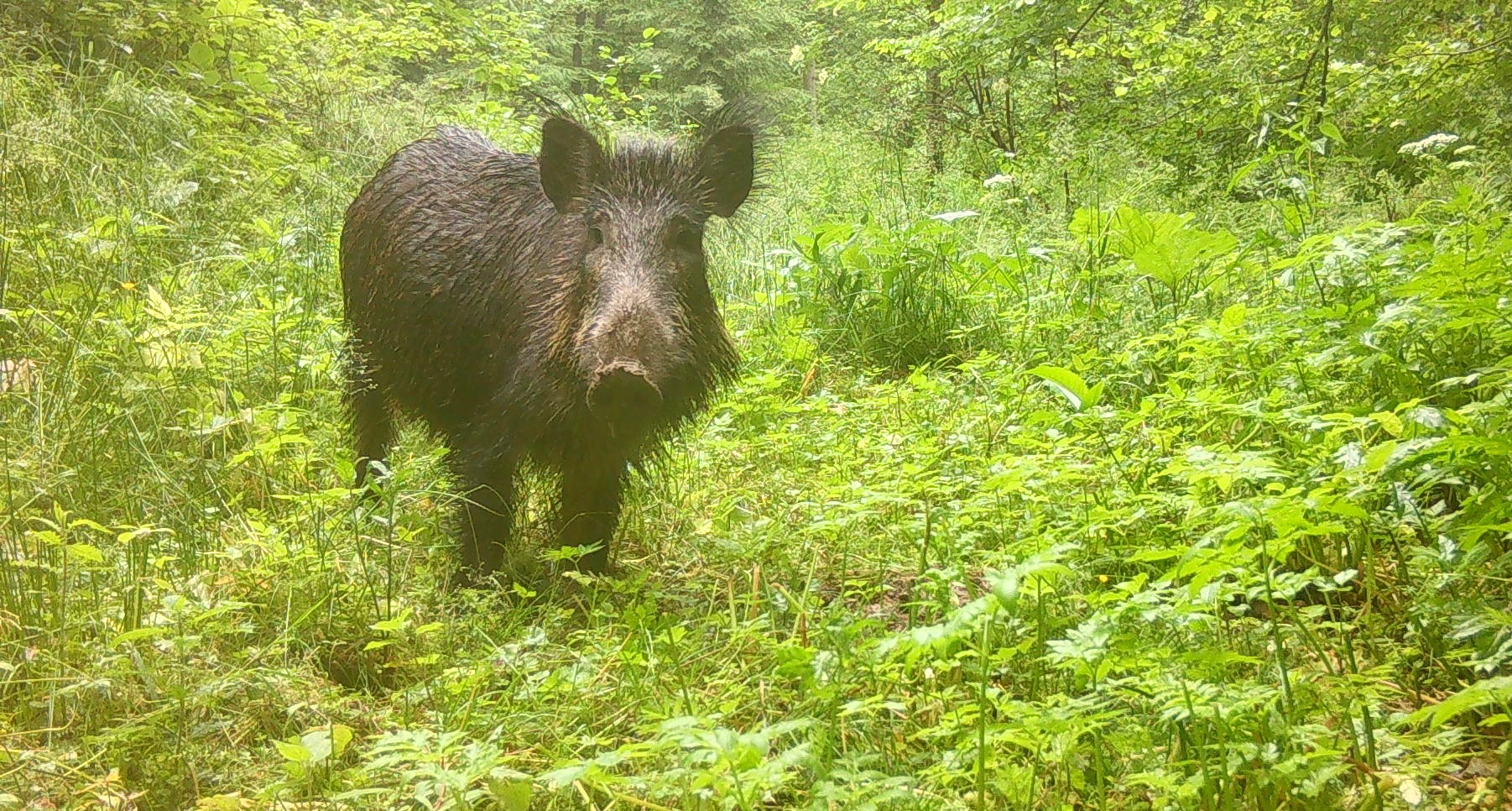Wild boar roaming is an ecological process that can have a significant impact on other species and entire ecosystems. Therefore, understanding the diet of wild boar is important as it provides key insights into its ecological roles and trophic interactions, and enables effective conservation and management strategies for the species.
Especially in late autumn, after the harvest of corn and other crops, signs of wild boar roaming can be increasingly observed in grasslands and grazing areas. This activity is linked to the search for protein-rich food that lies under the grass vegetation, i.e. underground plant parts and soil animals (mainly insects and their larvae).
Although wild boar roaming is almost always seen as a negative activity because of the economic damage it causes, it has a number of positive impacts on the ecosystem and, indirectly, on agricultural activity. By roaming, wild boars affect soil properties (e.g. by accelerating the decomposition of organic matter, contributing to soil moisture retention); by creating new microhabitats, thus maintaining heterogeneity in the ecosystem and increasing species richness; and by feeding on soil invertebrates, they also reduce the abundance of species that can otherwise cause damage to agriculture, such as. e.g., bare snails, string beetles, owlet moths, the European mole cricket and the larvae of the May and June beetles.
| “The wild boar is recognised as a very important ‘environmental engineer’, influencing changes in the structure and dynamics of the entire life community, including soil properties, biodiversity and the development of terrestrial ecosystems.” Natasha K.E. Sims |
Our cameras captured some interesting images in the Oljka hunting ground (Šmartno ob Paki) within the EOW, StepChange and CRP projects.


Populations of wild boar in Slovenian forests are increasing rapidly. In recent years, they have been seen in close proximity to settlements, which has led to growing concern among people. Is this concern justified? What do the experts have to say?
In an article for RTV Slovenia and Novi tednik, the Dean of the Faculty of Environmental Protection, Prof. Dr. Boštjan Pokorny, gave some answers.
⇒ The article can be viewed HERE ⇐

